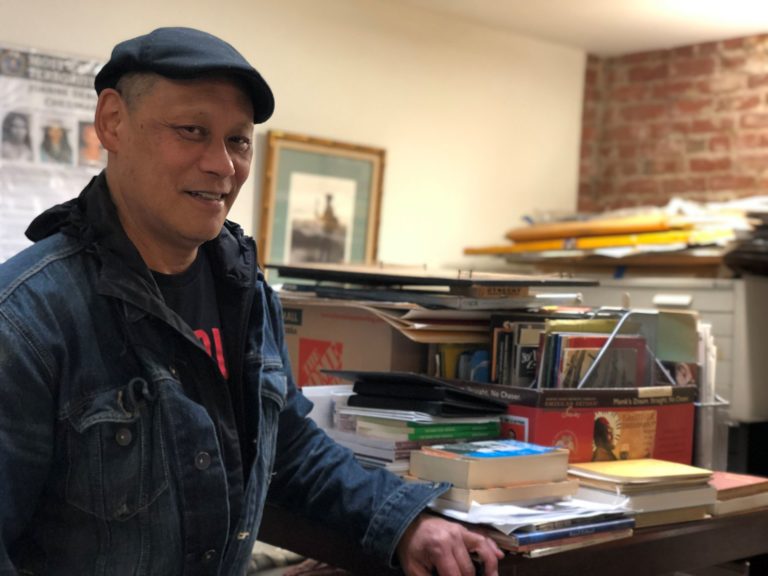A lifelong activist and native Oaklander, Morozumi, 65, has amassed a collection of tens of thousands of artifacts — videos, periodicals, pamphlets, posters, and more — that document the Third World Liberation Front (TWLF), the engine behind the student strikes half a century ago.
Formed by various minority student groups in 1968, the TWLF aligned itself with oppressed and colonized people in “third world” countries around the world, demanded and won not only the formation of ethnic studies departments, but also greater faculty and student diversity. The four-month strike at San Francisco State remains the longest student strike in US history.
In 2000, when he helped launch Eastside Arts Alliance, a grassroots nonprofit, Morozumi donated the bulk of his collection and called it the Community Archival Resource Project (CARP).
“Third World Studies taught us our history for the first time. And for the first time, we realized that we weren’t minorities anymore — we were part of the majority around the world,” says Morozumi, whose Chinese American mother was raised in Harlem, and whose Japanese American father survived World War II internment. “We learned about stolen land, slavery, and that capitalism was built on our backs. It helped us understand the political mentality and culture of this country.”
There are a number of universities and museums with collections related to the movement, but CARP is the only archive that captures the intersectionality that defined the Third World Liberation Front. That means that it includes buttons advocating for prisoner solidarity, zines espousing Malcolm X’s teachings about self determination, flyers about the fight for Japanese American redress, and photos of the Native American occupation of Alcatraz.
And while access to university and museum collections is often strictly limited — some UC libraries, for example, monitor researchers in glass rooms while they peruse collections — CARP is a “living” archive that Morozumi wants to stay in the community.
“This collection is in your face. It gets used,” he says, referring to the many film screenings, forums, and exhibits that CARP has hosted in Eastside Arts’ event space, and in community spaces around the Bay Area and even overseas. To date, CARP’s international shows include an exhibit about the Black Panther Party in Japan, and in an exhibit in Cuba about the US occupation of El Salvador.
Today there are dozens of undergraduate Ethnic Studies programs in the US, and in California and New York, some high schools now teach ethnic studies, too. But, Morozumi says, it requires ongoing organizing and advocacy to ensure that that these programs survive and remain relevant. He hopes that current activists take a note from the intersectionality that helped TWLF win its demands.
“I want to pass this history to the next generation of organizers,” he says. “This is your history and your future.”
Upcoming CARP Exhibits:
- This spring, CARP will hold an exhibit at Eastside Arts Alliance featuring vintage third world posters from the Organization of Solidarity with the People of Asia, Africa and Latin America.
- This fall, CARP will hold a retrospective at Eastside Arts Alliance on Robert F. Williams, an NAACP leader who took arms against the Ku Klux Klan in the late 1950s. The exhibit will feature original copies of Williams’ seminal book, Negroes With Guns, which was required reading for members of the Black Panther Party.
The San Francisco Foundation has provided critical funding to Eastside Arts since 2001, including a 2019 grant to support its Community Archival Resource Project. Today, the organization is a member of the foundation’s Artistic Hubs Cohort.


